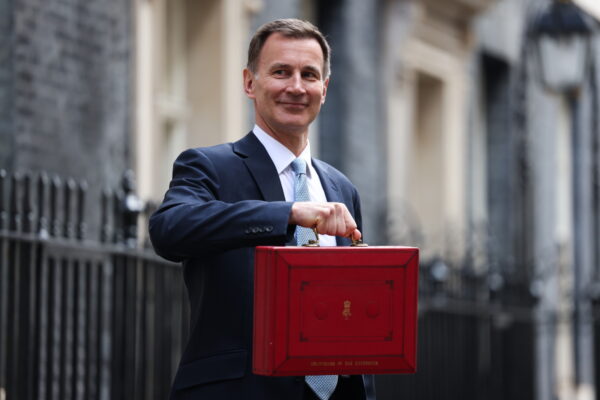
Recently announced tax changes could lead global high net worth individuals and their families to reassess their links to the UK.
Recent announcements from Jeremy Hunt sent a clear message to high net worth families currently residing in the UK: the game is changing.
In his Spring Budget, the chancellor announced a series of changes set to reshape future plans of these wealthy global families.
At first, it appeared to be good news for the multi-property owning cross-border elites, with the top rate of capital gains tax payable on disposal of residential properties cut from 28 to 24 per cent from April 6 2024.
However, the multiple dwellings relief in relation to stamp duty land tax (SDLT) is being abolished from June 1 2024. “Multiple dwellings relief reduces the amount of SDLT payable where two or more residential properties are purchased at the same time or as part of a series of linked transactions,” says Tracey Neuman, private client executive at Ocorian, a global asset servicing business, working for both institutions and private clients.
“There have been a number of cases recently in the courts where the relief has been claimed, which have been considered abusive, so it is not that surprising that the relief will be abolished.”
The UK’s ‘non-dom’ taxation regime – a significant driver of investors and families to live in the UK for the last 200 years – is also being significantly updated. From April 2025, the UK’s beneficial tax regime, which applies to individuals not domiciled in the UK, will be abolished A new system for individuals moving to the UK involves a four-year period during which their foreign income and gains will not be subject to UK tax. Once the four-year period is over, non-domiciled individuals and families will have to pay the same income and capital gains taxes on the same basis as other UK taxpayers.
Some commentators believe this will lead to wealthy families re-assessing where to base their businesses and assets.
“The non-dom tax status has long been a cornerstone of the UK’s appeal to global high net worth individuals and their families, offering a unique tax arrangement that allows foreign residents to mitigate their tax liabilities,” says Nigel Green, chief executive of the deVere Group, overseeing $10bn of assets invested by clients from financial hubs including London, Luxembourg and Hong Kong.
“However, the imminent removal of this tax privilege is expected to prompt a significant number of non-domiciled individuals to reassess their residency choices.”
He believes this will make other financial hubs more attractive for wealthy investors. “These individuals are internationally mobile,” he says. “This will inevitably prompt many of those affected to simply move to more attractive, lower-tax jurisdictions, such as Dubai, Switzerland, and Singapore.”

Wait and see
But there is also much debate about the impact of the latest changes. “There is an election coming up, we’ve got pretty much a zombie government at the moment,” says Paul Taylor, a consultant specialised in restructuring major financial services firms and reshaping their business models.
Time is running out for the Conservative government to call a general election in the traditional berth of the first Thursday of May, but the prime minister has indicated this could take place in the autumn of 2024.
“I imagine any high net worth individuals might hang around and wait until the election happens,” says Mr Taylor, believing an immediate exodus of wealthy families would be unlikely.
Others share a similar view. “Wealthy families do not move their location very often and move countries with even lower frequency,” says Max Thowless-Reeves, partner at multi-family office Sorbus Partners, based in the north of England. “The notion that any more than a few families can breezily shift country at the drop of a hat is fanciful.”
Wealthy families have “complex” and “varied” motivations, he says. “Differing tax rates and treatments can certainly be influential for some people. But it is never the sole consideration. Often, it is considerably less influential than having warmer weather or being closer to ski slopes or nearer an elderly relative, or grandchildren, for example,” he says.
The UK also has features that have made it extremely attractive for wealthy families to move to despite its relatively high tax burden. “London is the most cosmopolitan city on earth, it is the most cosmopolitan city there has ever been,” says Mr Thowless-Reeves.
“Many of the wealthy families that have moved here — and therefore are more likely to be in that small group of families that can change countries with ease — have been less motivated with the UK's relative economic performance than with the integrity and incorruptibility of its legal system.”
There are around 37,000 non doms in the UK who opt to be taxed on a ‘remittance basis’. Those 37,000 people collectively paid about £6bn ($7.6bn) in UK income tax, according to the Institue of Fiscal Studies. Non-domiciled individuals will also have to pay inheritance tax on worldwide assets, once they have been resident for 10 years.

The future of ‘UK PLC’
As well as the future destination of wealthy families, the nature of the Budget measures is also being closely observed by domestic and foreign investors. While ‘UK PLC’ still has many strengths, it is falling behind some rival economies. The economies of the European Union (EU) and the United States, for instance, are innovating, investing significantly and preparing for the future.
The UK faces many barriers, from an ageing population, to adapting over the long-term to a challenging departure from the EU.
Currently, the UK market is relatively cheap by its own standards as well as when compared to other markets. “In my view, this valuation differential will persist,” says Saftar Sarwar, managing director, and chief investment officer at London-based financial advisers Binary Capital. “The best companies and best of innovation is not happening in the UK and the recent Budget will not change that.”
The launch of a new version of the Individual Savings Account (ISA), specifically directed to British firms, which was flagged by the government as a major initiative, will make little difference, he says.
“The announcement of a UK British ISA is not really expected to move the investment dial towards the UK. Investors' capital is free flowing and will end up in and support the best companies and those with potential to be the best: the best innovators, disruptors and those willing to take risks for excessive returns,” says Mr Sarwar.
“The UK Budget will not really change the future of UK companies nor the UK stockmarkets,” he says. For Mr Sarwar, the most “innovative” and “forward-looking” companies are in the US and China. That’s where the most “dynamic change” is happening,” he says.
But not all is doom and gloom for the UK, as Pierre Ramadier, newly appointed chief executive officer of international markets at BNP Paribas Wealth Management, points out, as clients are looking increasingly to the UK for investment opportunities. “We think there’s a high concentration on the ‘Magnificent Seven’, and we are cautious about this and prefer not to invest too much in it and recommend diversification,” says Mr Ramadier.
“There are under-valuations of companies in Europe and the UK that we think can be more attractive than the Magnificent Seven.” Mr Ramadier is keen to leverage his international background and expertise in working with family and entrepreneur clients to enhance co-operation between various segments of the BNP Paribas group, particularly investment and corporate banking. The UK is a market very much in his sights, and he is now visiting London more regularly.
The message coming from these experts is also clear: international connectivity is key. Rather than look to its government in London for inspiration, the UK’s business sector would fare better seeking examples of entrepreneurs from New York, Silicon Valley, Shanghai and China’s Pearl River Delta.





